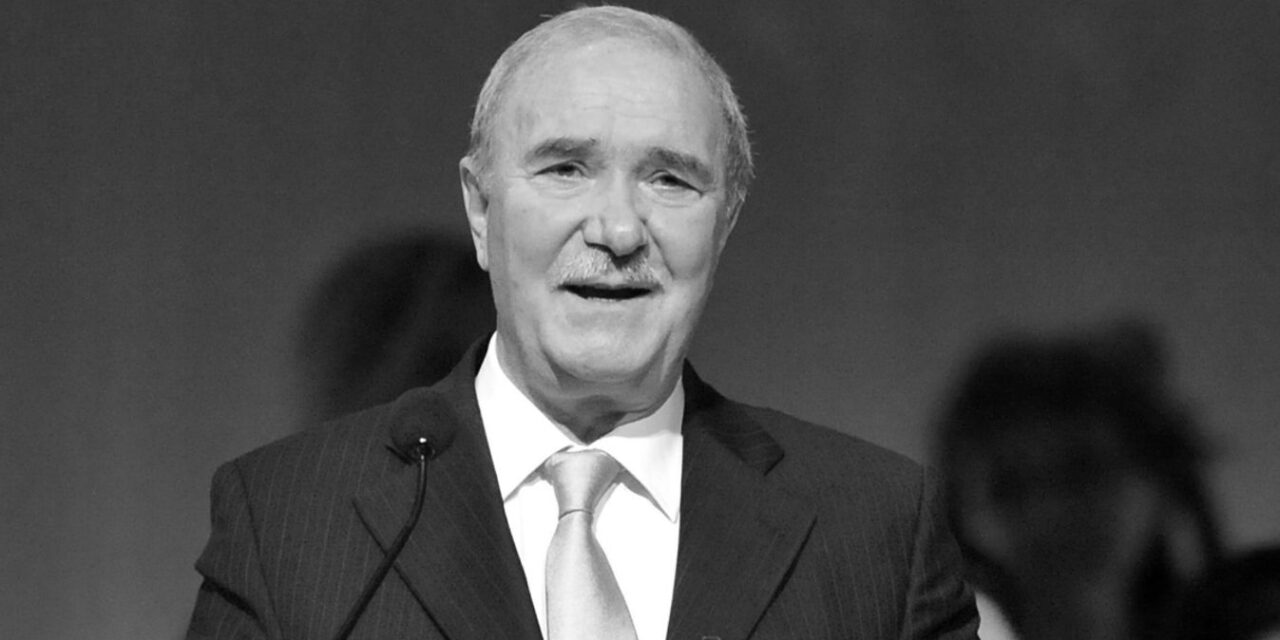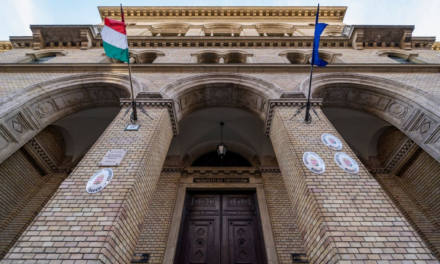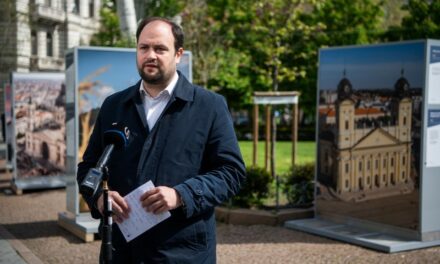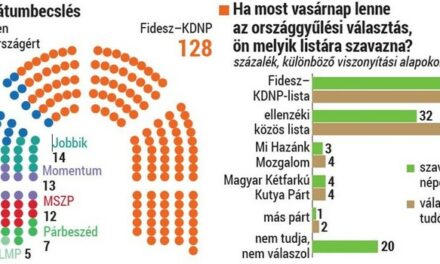Géza Tordy, the Kossuth Award-winning and two-time Jászai Mari Award-winning actor, director, worthy and excellent artist, hereditary member of the Society of the Immortals, was 85 years old, the National Theater wrote
Géza Tordy was born on May 1, 1938 in Budapest. He studied architecture in high school, but already at the age of 16 he was a member of Ida Versényi's art-loving acting circle, he was admitted to the college in 1956, but acting training did not start that year, but János Zách, the director of the Kaposvár theater, hired him as an assistant actor. On October 26, 1956, Tordy recited the Sermon at the city's Petőfi statue.
He moved from Somogy to Szeged for two years, then at the age of 21 he became a member of the Hungarian People's Army Theater (the Vígszínház). Between 1963 and 1967, he signed a contract with the Madách Theater, then returned to the Vígszínház. At that time, he was already directing, and his plays were presented at the Petőfi Theater in Veszprém. From 1992, he was the artistic director of the prose department of the Győr National Theatre, from 1995 he was the chief director of the Budapest Chamber Theatre, and for decades he taught at the University of Theater and Film.
Since he didn't go to college, he learned practically everything that could be learned on stage, film, television, and dubbing. In an interview, he said that it was at least ten years before he could really call himself an actor.
His acting is characterized by excellent characterization skills, emotional authenticity in the portrayal of romantic and modern heroes, and a wild yet controlled passion of his emotions.
As one of the audience's favorites, he also performed outstanding roles in theater, film and television.
On stage, he played one of Shakespeare's heroes Edgar in King Lear, Orlando (As You Like It) and Puck (A Midsummer Night's Dream).
Camille Desmoulins in Büchner's The Death of Danton, Knight Ripafratta in Goldoni's Mirandola, Luka in Gorky's Night Shelter, Willy Loman, the agent in Arthur Miller's play. He played Salieri in Peter Shaffer's Amadeus at the Hungarian premiere of the play; In 2010, he directed the same play at the National Theater in Miskolc.
According to a statement, directing gave him more freedom than acting. He staged more than 60 plays, among others Liliom (Ferenc Molnár), Cheresznyéskert (Czehov), Tram of Desire (Tennessee Williams), III. Richard (Shakespeare), American Elektra (Eugene O'Neill), Crime and Punishment based on Dostoyevsky (both in Győr and Vígsthínház), The Red Postcar based on the works of Gyula Krúdy, and Károly Szakonyi's Delivery Error in Veszprém.
He appeared in front of the camera for the first time in 1957: he was not even nineteen years old when the director couple Máriássy selected him during a test recording for one of the roles in Külvárosi legenda, in which he had partners such as Manyi Kiss, Mari Törőcsik, Imre Sinkovits. At the age of 22, he already played the main role in the comedy Füre lépni szbat, directed by Károly Makk.
Later, he became an almost indispensable character in Hungarian films, at the age of 26 he played Jenő Baradlay in the legendary film version of Sons of a Stone Heart.
He was the traveling student of Tenkes captain, Miklós deak of Egri stars, played in Zoltán Kárpáthy, Fekete gémants, 80 huszárs, The red countess.
His name is linked to a whole series of TV dramas, including Édes Anna, Malom a Séden, A caesar, Helyet az fjuságnek and Színház all, and he also appeared in the recently released historical film Hadik, directed by János Szikora. He likes to dub, lending his voice to Gérard Philipe, Robin Williams, Robert De Niro, Jack Nicholson and Anthony Hopkins, among others, he can be heard in several radio plays, and he narrates the audiobook version of Hemingway's The Old Fisherman and the Sea.
In an interview, he said that he spent the most beautiful and meaningful years of his life in the Vígszínház, which he felt was his home. He considers himself lucky to have been able to work with Zoltán Várkonyi, who, in addition to being a father figure, was a defining master in both theater and film.
In 1970 and 1977, Géza Tordy received the Jászai Mari Award in recognition of his art, in 1980 he became a meritorious artist, in 1988 he was an excellent artist, and in 1991 he received the Kossuth Award. Awarded the Officer's Cross of the Order of Merit of the Republic of Hungary, he also received the Gyula Hegedűs Award, the Andor Ajtay Award, the Bilicsi Tivadar Award and the Éva Ruttkai Memorial Ring, the latter being the first to be awarded to him on the 60th anniversary of the artist's birth, in December 1987. In 2005, he was elected among the hereditary members of the Society of Immortals. In 2008, he became the Actor of the Nation, in 2011 he received the Prima Primissima award. In 2019, at the Szinkronikum gala, he received the recognition of the dubbing profession, the Lifetime Achievement Award of the Performers' Rights Office Association (EJI).
On one occasion, he said the following about acting:
Theater is like architecture. It has visual arts, poetry, melody in the forms, everything. Only the theater is a little more vulgar, because it is more ephemeral"
- said Géza Tordy, who would have turned 86 on May 1.
MTI
Featured image: MTI/Tamás Kovács













